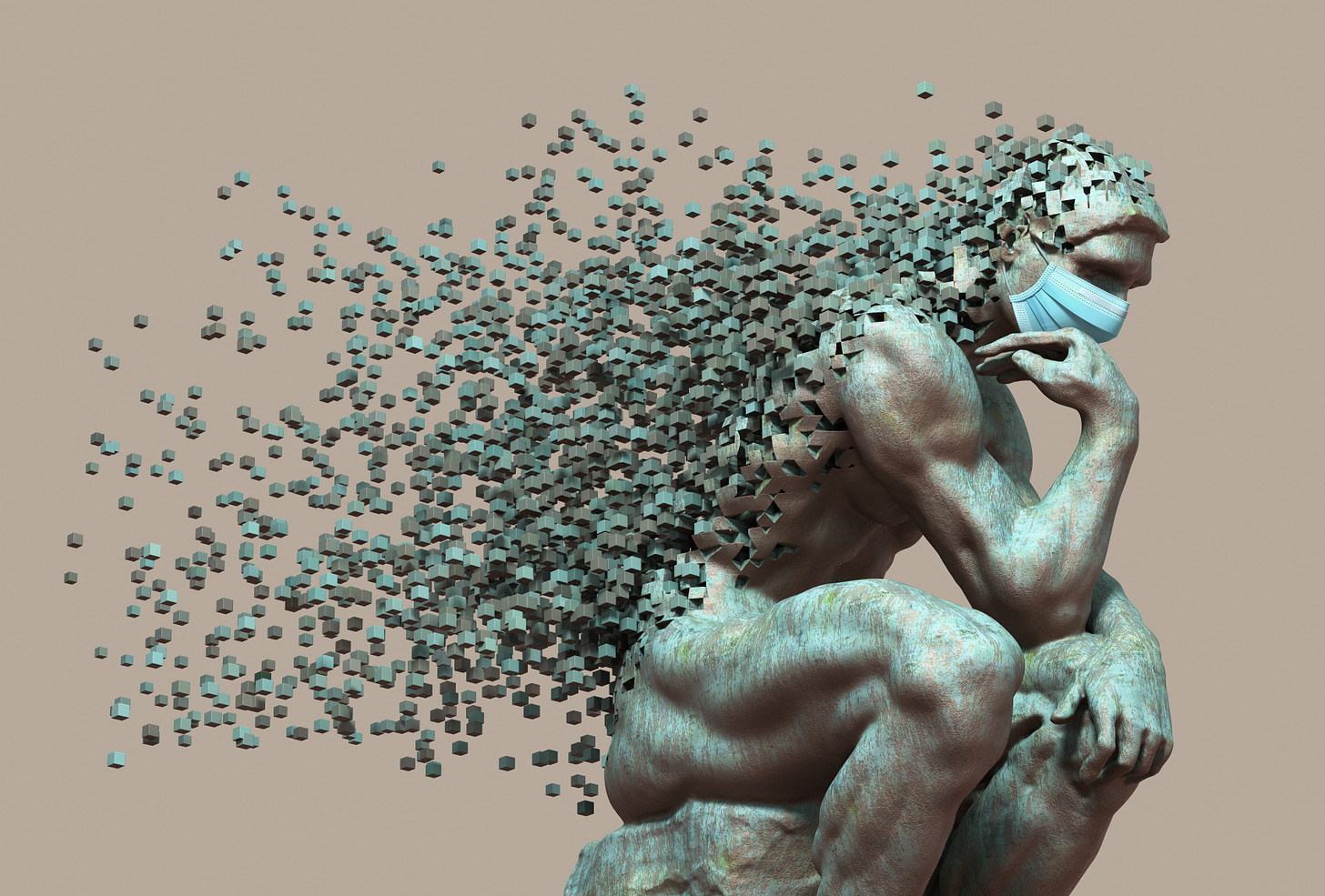Today’s post explores Epictetus’ suggestion for what to do when we are experiencing a physical illness.
We all know what it’s like to have an injury or sickness that prevents us from being able to function in ways we like, but the question is…
Does a physical illness automatically have to mean psychological suffering?
Last week I published the breakdown “Welcome Events Just As They Are,” and this post continues on that theme but focuses on illness as a potential cause of distress.

Whenever you are ill, remember that this is a problem for the body, not the mind.
Illness only becomes a problem for the mind if the mind decides to make it a problem.

Being crippled or injured is also a problem for the body, not the mind.
Whenever you are experiencing a physical illness, say the following sentence to yourself:
“This is a problem for the body, not the mind.”
You will soon discover that the problem is about something external to you, and none of your concern.

Notes:
Recently I posted a question asking for most influential books the Stoic Handbook members have read, and so far we have a total of 16 amazing books. You can check out the list here.
If you’d like a quick look at all the Stoic Handbook posts so far, you can view the library here.
ENCHIRIDION CHAPTER NINE, EPICTETUS, TRANSLATION BY ROBERT DOBBIN:
Sickness is a problem for the body, not the mind – unless the mind decides that it is a problem. Lameness, too, is the body’s problem, not the mind’s. Say this to yourself whatever the circumstance and you will find without fail that the problem pertains to something else, not to you.



